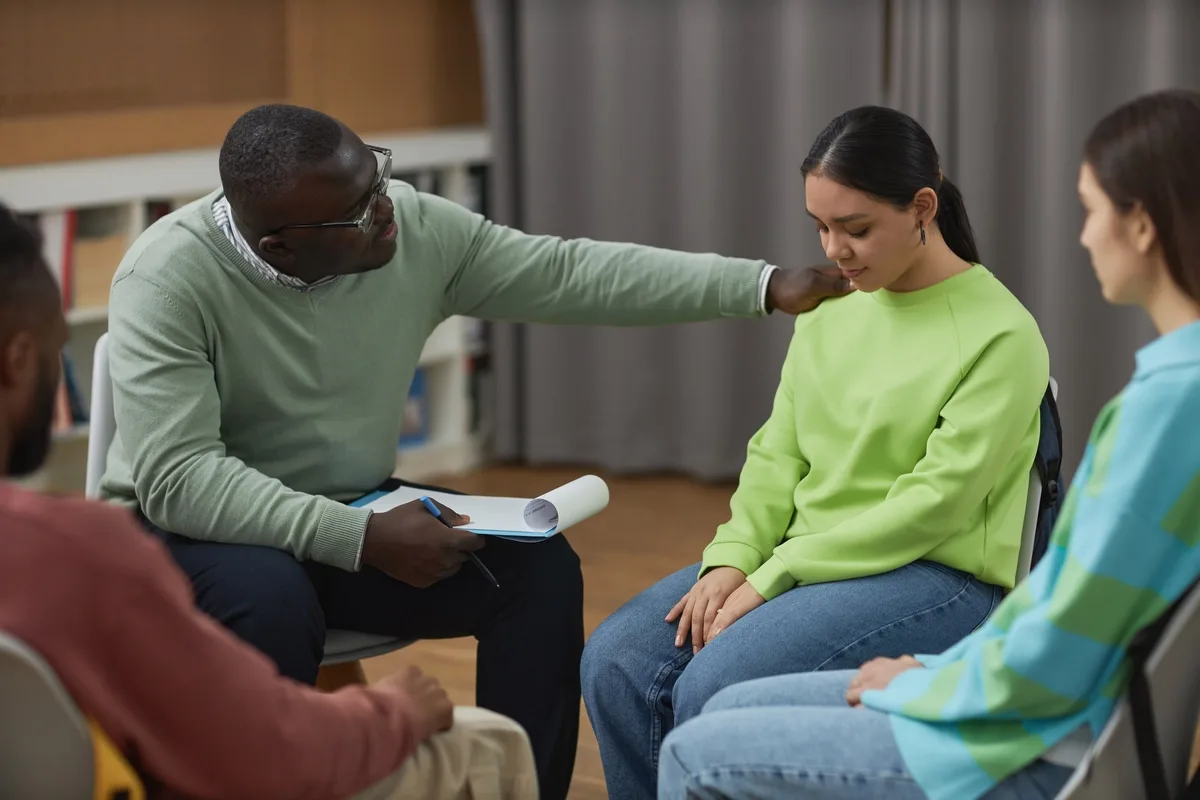24/7 Helpline:
(866) 899-111424/7 Helpline:
(866) 899-1114
Learn more about PTSD Treatment centers in Woodbine
PTSD Treatment in Other Cities

Other Insurance Options

Optima

Horizon Healthcare Service

Coventry Health Care

Carleon

Optum

Ceridian

PHCS Network

ComPsych

Absolute Total Care

BlueCross

Group Health Incorporated

MHNNet Behavioral Health

BlueShield

Medical Mutual of Ohio

Evernorth

AllWell

Aetna

Holman Group

UMR

Choice Care Network







JAEL Health Services
JAEL Health Services is a private rehab located in Ellicott City, Maryland. JAEL Health Services spe...

















































































































































































































Counseling Resources
Counseling Resources is a private rehab located in Ellicott City, Maryland. Counseling Resources spe...

Yudaguru Integrative Wellness
Yudaguru Integrative Wellness is a counseling center located in Ellicott City, Maryland. Lead by Abh...














































































































